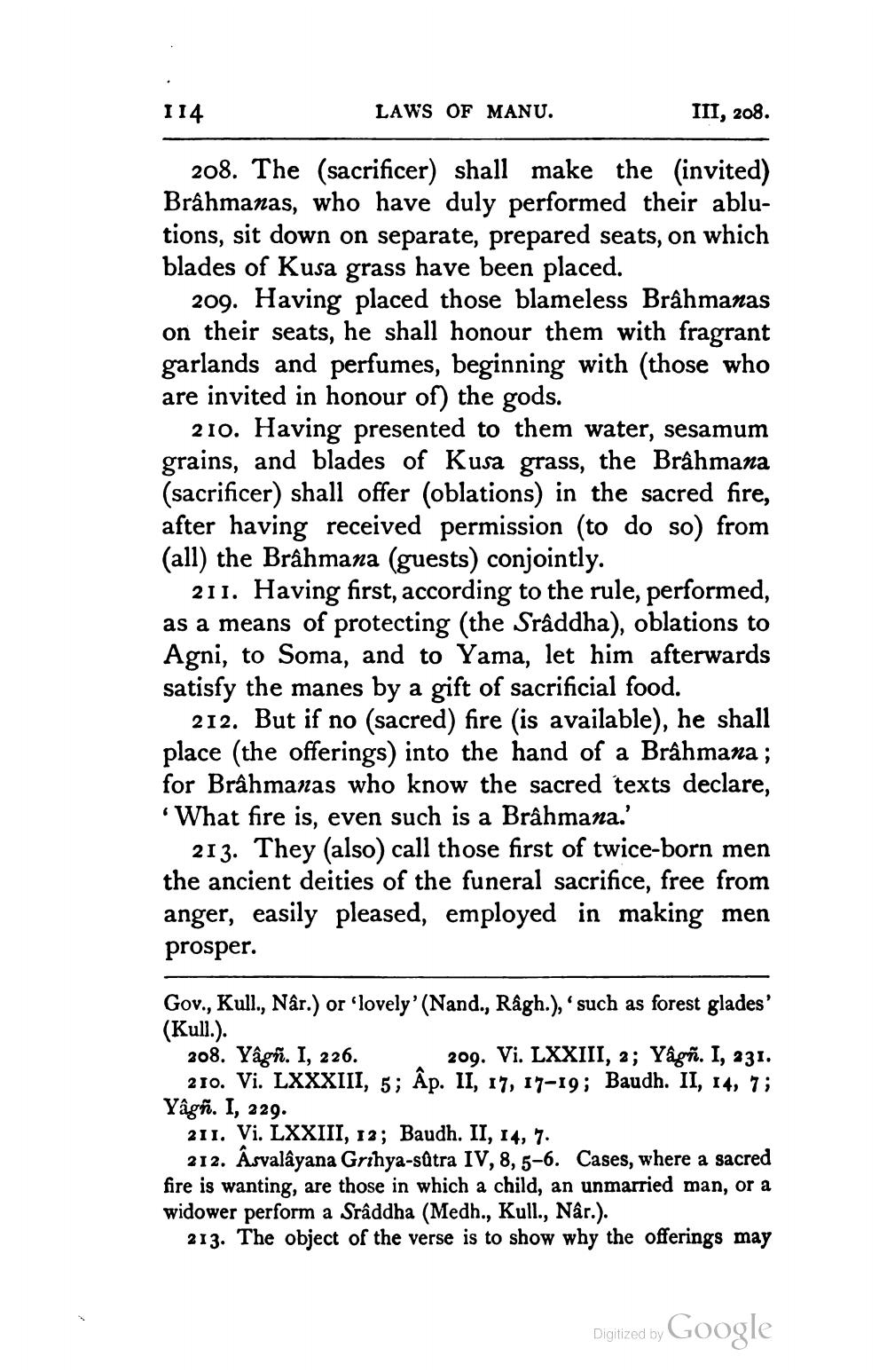________________
114
LAWS OF MANU.
III, 208.
208. The (sacrificer) shall make the invited) Brahmanas, who have duly performed their ablutions, sit down on separate, prepared seats, on which blades of Kusa grass have been placed.
209. Having placed those blameless Brahmanas on their seats, he shall honour them with fragrant garlands and perfumes, beginning with (those who are invited in honour of) the gods.
210. Having presented to them water, sesamum grains, and blades of Kusa grass, the Brâhmana (sacrificer) shall offer (oblations) in the sacred fire, after having received permission (to do so) from (all) the Brâhmana (guests) conjointly.
211. Having first, according to the rule, performed, as a means of protecting (the Sraddha), oblations to Agni, to Soma, and to Yama, let him afterwards satisfy the manes by a gift of sacrificial food.
212. But if no (sacred) fire (is available), he shall place (the offerings) into the hand of a Brahmana; for Brâhmanas who know the sacred texts declare, •What fire is, even such is a Brâhmana.'
213. They (also call those first of twice-born men the ancient deities of the funeral sacrifice, free from anger, easily pleased, employed in making men prosper.
Gov., Kull., Nâr.) or 'lovely' (Nand., Rågh.), such as forest glades' (Kull.).
208. Vâgñ. I, 226. 209. Vi. LXXIII, 3; Yâgñ. I, 231.
210. Vi. LXXXIII, 5; Âp. II, 17, 17-19; Baudh. II, 14, 7; Yâgñ. I, 229.
211. Vi. LXXIII, 13; Baudh. II, 14, 7.
212. Asvalâyana Grıhya-sâtra IV, 8, 5-6. Cases, where a sacred fire is wanting, are those in which a child, an unmarried man, or a widower perform a Sraddha (Medh., Kull., Nâr.).
213. The object of the verse is to show why the offerings may
Digitized by Google




